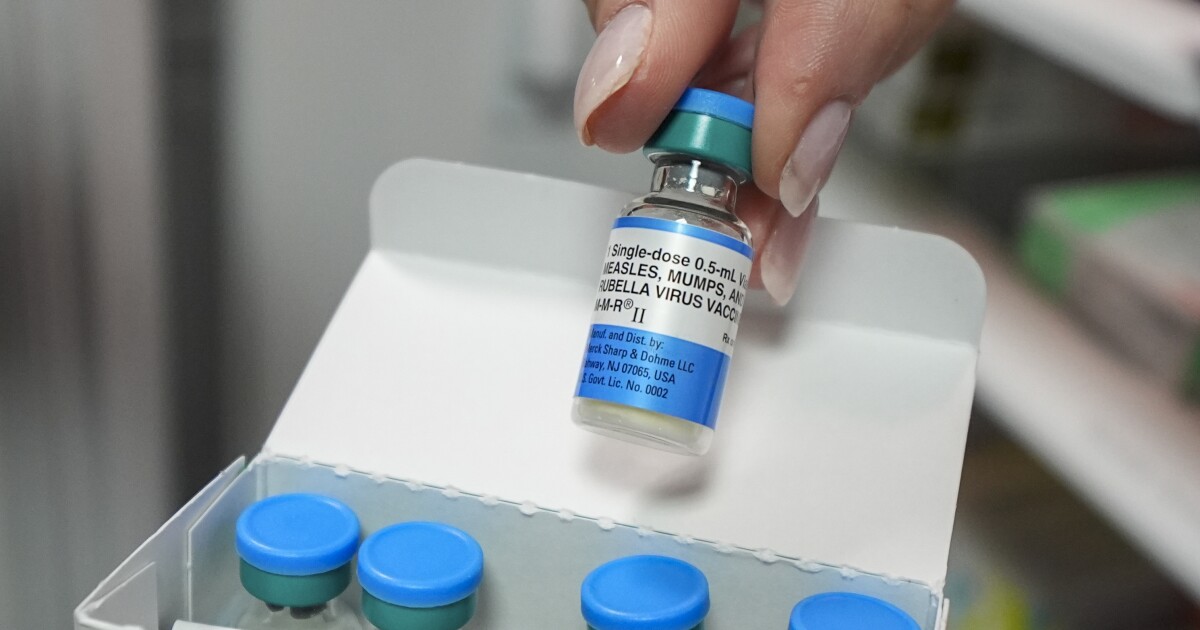
Illinois medical experts are debunking unproven claims made by President Donald Trump this week that the common pain reliever Tylenol is linked to autism, emphasizing what some said are the dangers of offering medical advice without evidence.
Trump held a news conference Monday, blasting the over-the-counter drug known by the generic name acetaminophen, urging women not to take the pain reliever that physicians have said for years is the only safe drug to take during pregnancy. He said the Food and Drug Administration would begin notifying doctors that the use of acetaminophen “can be associated” with an increased risk of autism, but did not immediately provide any medical evidence for the FDA’s new recommendation. The president also raised unfounded concerns about links between autism rates in children and vaccines.
Dr. Ravi Jhaveri, head of infectious diseases at Lurie’s Children’s Hospital in Chicago, said he believes important steps were neglected by the president and his administration that are historically needed before a scientific claim or medical advice can be offered.
“In my career I’ve never seen a president give a press conference making a recommendation like this,” Jhaveri said. “So it’s not clear what data was reviewed, what evidence was weighed in order to make this recommendation. So it’s highly troubling to many of us that there was not a clear process and discussion when issuing a sweeping recommendation like this.”
Acetaminophen, the active ingredient in Tylenol, has long been one of the most popular pain relievers and fever reducers in the U.S., used by upwards of 100 million Americans annually.
Typically, Jhaveri said, when the U.S. Food and Drug Administration – the agency that oversees pharmaceutical guidance – has concerns about a medication, they convene special panels with medical experts to review data, hold public hearings and publish reports with updated recommendations.
“It is not clear to make or others that any of those processes were followed when making this recommendation,” Jhaveri said.
The American Academy of Pediatrics, based in Itasca, issued a statement saying Trump’s comments were “filled with dangerous claims and misleading information,” which likely would confuse parents and “does a disservice to autistic individuals.”
“We know autism is complex, highly variable and increasingly linked to genetics,” the AAP statement reads. “Individualized plans, often involving a combination of developmental, behavioral, educational and social-relational strategies, can help improve outcomes that are meaningful to individuals and families.”
An OSF HealthCare physician also issued a similar statement.
Dr. Terry Ho, managing medical director for the OSF’s Central Region, said there’s no clear evidence to support claims that acetaminophen use during pregnancy causes autism.
“Attributing autism to a single preventable cause minimizes the reality that autism is a complex neurodevelopmental condition and trivializes the experience that those with autism and their families that care for them go through,” Ho said. “Our focus should not be looking for a single cause but instead focus on additional research and even more important, improving our diagnostic capabilities, providing early intervention and increasing the support and resources needed for those with autism.”
The attack on Tylenol by the U.S. president was unprecedented but not exactly new territory for one of the world’s most common pain relievers, The Associated Press reported. The maker of Tylenol, Kenvue Inc., also refuted Trump’s claims.
Jhaveri said it’s important for parents and patients to continue talking to their primary care providers and physicians when seeking medical advice.
“They should consider that the rest of this is really a lot of noise and distractions and that when they have these questions that involve the health and safety and welfare of their children, go have that talk with your pediatrician and primary care doctor,” Jhaveri said. “And that’s the voice you trust.”



